Deborah Heal's Blog, page 29
April 25, 2012
HOW NOT TO WRITE CHRISTIAN FICTION
I keep trying to find good Christian fiction.
I really do. In recent weeks I read two historical novels, 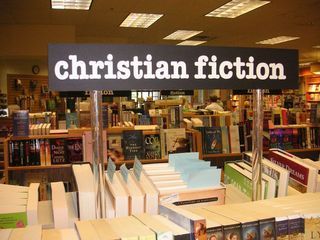 one a debut, and one by a bestselling author with many titles to her credit. Both shall remain nameless here. I will not, as I first intended, write book reviews for them for Amazon or GoodReads, because my purpose is not to bash them or belittle their efforts. Heaven knows how difficult it is to write a novel. Instead, let’s learn from their weaknesses.
one a debut, and one by a bestselling author with many titles to her credit. Both shall remain nameless here. I will not, as I first intended, write book reviews for them for Amazon or GoodReads, because my purpose is not to bash them or belittle their efforts. Heaven knows how difficult it is to write a novel. Instead, let’s learn from their weaknesses.
POINT OF VIEW
Readers count on getting into the head of the main character on the first page, so if your main character is Mae, and you’re telling the story from her point of view, don’t begin chapter one from Hal’s:
“The winter of ’92 is gonna go down as one to the worst we’ve ever seen.” Hal Murphy grumbled as he dumped the sack of flour on the store counter. . .He turned toward Mae Wilkey, the petite postmistress. . .
If you’re telling the story with a limited narrator from the point of view of Mae’s character, don’t suddenly go omniscient like the author does here:
She put a smile on every man’s face, but she wasn’t often aware of the flattering looks she received.
WORD CHOICE FOR THE TIME PERIOD
If the story is set in 1870’S, don’t use contemporary terminology and slang: She wouldn’t use the exclamation “Hot Dog!” The term wasn’t coined until the 1900’s. She wouldn’t “date” a man. Nor would she say “heads would roll.”
She wouldn’t call her brother a “teen,” or describe him as born with “special needs,” definitely a modern euphemism.
LOGIC/CONSISTENCY
If her brother is mentally challenged, don’t say he’s a “quick learner” and have him managing the kitchen/household for her while she’s gone. (And how did he learn to cook anyway, since she doesn’t know how and they live alone?)
Know about the topic you’re writing about. Dogs and cats don’t eat “mash” (ground grain). And one thousand pound (overgrown, old) sows don’t bring premium price at the market.
And it’s not likely two women could or would butcher one alone, at night, in North Dakota in mid-January, with a pack of hungry dogs watching politely, when the hog has been lying in the road dead all day. Nor would they be able to sink fence posts in the frozen ground to build a fence. I’m just saying.
WORD CHOICE FOR PRECISION
They might eat into them, but don’t say “ freight costs vs. profits.”
Don’t imply two things are happening simultaneously when that’s not even possible: “He emerged, turning to lock the door.”
“The houses were built so close you could spit on the neighborhood.” Really?
“His right hand felt the tears in his coat.” This is creepy.
If you’re going to use a cliché, get it right: not “tingling in the pit of his gut” or “snow particles.” And how can everything in town be “shut tighter than a tick burrowed in?”
“She sighed and twirled [they’re dancing] like the fanciest-reared lady.” That’s a bit racy.
CHRISTIAN FICTION
Including a parody of a Hell-fire and brimstone preachers as your only reference to anything Christian doesn’t make this into a Christian novel. And by the way, such a preacher wouldn’t condone dancing either.
You might be thinking these snippets come from the debut author I mentioned. But you would be wrong. This author has scores of titles to her credit. To me, the worst thing about this low caliber writing is because it is labeled “Christian.” I’m with Franky Schaeffer, who says Christians should reclaim the arts, striving for excellence in order to bring honor and glory to God in all arenas of life.
Let’s keep on striving until readers stop putting our books down with a sneer. Can I hear an amen?
April 12, 2012
Writing Real Good
Once years ago I saw a letter to the editor that really stirred me up. The title was "Pro-lifers should put up their money. "The writer said (in part), "Pro-choice people espouse the virtues of a woman's right to choose. Pro-life advocates march back and forth in front of clinics carying signs calling people murderers or citing religious scripture. . . .but I find it most interesting that I have never seen one sign reading, 'if you will carry the child to term, I will adopt it, clothe it, fee it, give it an education. . .' [Pro-lifers should] be willing to make that kind of commitment. Back in the old days, we called it putting your money where your mouth is."
I have to admit, I was angry. After all, I and a lot of other volunteers worked really hard at the local crisis pregnancy center to help women facing unwanted pregnancies. But I knew anger would only alienate not convince and that a “ A gentle answer turns away wrath. ("Proverbs 15:1) And so here's how I responded:
would only alienate not convince and that a “ A gentle answer turns away wrath. ("Proverbs 15:1) And so here's how I responded:
"Mr. ****" is right when he says a pro-lifer should put his money where his mouth is. Mr. ****is certainly not the first to point out the hypocrisy of shouting "don't abort!" but not being willing to care for the thousands of unwanted or unplanned children. Pro-lifers haven't lacked the desire to help, but. . .we haven't always known how.
"But after Roe vs. Wad, caring pro-lifers began opening crisis pregnancy centers all across this country to meet the real needs of unplanned pregnancy. Mr. *** will be surprised to know that our town now has its own. The Arms of Love Crisis Pregnancy Center in Godfrey opened in January 1195. Director **** and her trained volunteers lovingly support clients with maternity clothes, baby clothes, baby supplies, and formula, all provided by generous supporters. The center refers for adoption, medical care, and financial help and provides on-going education for its clients. Hundreds have been assisted and at least 13 priceless babies have been born so far because their moms found it a lot easier to choose life.
"Saturday, Sept. 23, supporters will walk in the second annual Hike-For-Like at Gordon Moore Park to raise money for the center. Call the center for a hike pledge sheet so you can also put your money where your mouth is."
Amazingly, Mr. **** showed up at the Center a few days later. I only worked occasionally at the Center, but God worked it out that I was the one to answer the door when he knocked that day. When he introduced himself, my heart lurched a little in fear. What if he was angry about my article? But instead, he smiled and said, "You're right and I was wrong." and handed me a check for the Center for $100. Ah, power of the pen to write real good!
Write Brain Activity
1. The second half of Proverbs 15:1 is, "but a harsh word stirs up anger.” What damage could have been done if I had answered Mr. *** in anger?
2. Give an example of a time your writing skills were used for good.
3. Tell about a time when you were able (or not) to turn away anger with a gentle/respectful answer.
April 6, 2012
It's Okay to Be Moody When You Write
Using Description to Characterize, Set the Mood, and Build Suspense
I’ve really enjoyed Dean Koontz’ writing through the years. And the endearing young man Odd 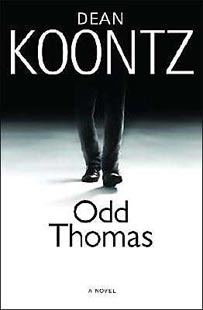 Thomas, the title character for a series of mysteries, is one of my favorite literary characters. Some claim Odd's one of the most beloved fictional characters of our time. I have to admit I have a bit of a crush on him myself. Here in this excerpt from chapter thirteen of Odd Thomas, Koontz follows the sound practice of showing us, not telling us the bad guy is truly evil. Here Odd Thomas investigates the room of Robert Robertson, whom Odd thinks of as Fungus Man.
Thomas, the title character for a series of mysteries, is one of my favorite literary characters. Some claim Odd's one of the most beloved fictional characters of our time. I have to admit I have a bit of a crush on him myself. Here in this excerpt from chapter thirteen of Odd Thomas, Koontz follows the sound practice of showing us, not telling us the bad guy is truly evil. Here Odd Thomas investigates the room of Robert Robertson, whom Odd thinks of as Fungus Man.
Side by side on the wall opposite the desk hung three black-and-white, poster-size photographs that appeared to have been printed on a draftsman’s digital plotter. They were head shots, portraits of men—one with feverish eyes and a gleeful smile, the other two glowering in the gloom. . .Charles Manson, the vicious manipulator whose fantasies of revolution and race war had exposed a cancer at the core. . .He had carved a swastika on his forehead. Whoever the other two might be, they didn’t have the look of either Vegas comics or famous philosophers. . . . [Koontz often inserts comic comparisons.]
Drawer after contained dossiers on serial killers and mass murderers.
The subjects ranged from Victorian England’s Jack the Ripper to Osama bin Laden, for whom Hell had prepared a special suite of fiery rooms. Ted Bundy, Jeffrey Dahmer. Charles Whiman, the sniper who killed sixteen in Austin, Texas, in 1966. John Wayne Gacy: He liked to dress up as a clown at children’s parties. . .
A particularly thick file had been assembled for Ed Gein, who had been the inspiration for both Norman Bates in Psycho and Hannibal Lecter in The Silence of the Lambs. . .
A portrait of Timothy McVeigh hung to the right of Manson. . .
To the left hung Mohammed Atta, who had flown an airliner into one of the World Trade Center towers, killing thousands. . . As with Manson and McVeigh, [Fungus Man] apparently admired Atta for the terrorist’s cruel vision, brutal actions, and accomplishments in the cause of evil. . .
This room was less of a study than it was a shrine. . . .
Most likely Fungus Man was unaware that his sanctum served not merely as a catalogued repository for his homicidal fantasies but also as a terminal admitting bodachs [demonic spirit creatures] to a holiday of blood. Without my sixth sense, perhaps he could sit here, happily working on one of his grisly files, and not be conscious of the ominous transformation of the room or of the arriving hordes of demonic entities.
From nearby came a tick-tick-tick, a bone-on-bone rattle that brought to mind Halloween images of ambulatory skeletons. . . .
Perhaps Robertson [Fungus Man] required few luxuries because he found all the pleasure he needed in ceaseless bloody fantasies that gouted through his imagination. . . .
A sudden frenzied flapping-rattling almost brought me up from the chair again, but then a sharp and repeated skreek [a cool onomatopoeic invention of Koontz’] identified the source as crows pecking out their turf on the roof. . .
Even though Odd Thomas (and the reader) haven't even met the guy yet, this description of Robertson's room leaves no doubt in Odd Thomas' mind (and that of the reader) that he is truly evil. Koontz's description is used to build Robertson's character, to create a creepy mood, but also to ratchet up the novel's suspense. Just seeing where this guy lives causes the reader's dread and fear of the hero’s inevitable meeting with him to sky-rocket.
Write Brain Activity
1. What words in the passage contribute to the ominous mood of the piece?
2. Besides description, by what other methods do authors develop characters?
3. Do you think the mention of clowns helps or hinders the mood Koontz is trying to create?
April 3, 2012
Getting a Literary Agent
I decided I needed an agent for my second book. I know—it sounds pretentious.
But apparently these days it’s a requirement for getting a book published by one of the larger publishers where a writer has a greater chance for success. At least this is true for fiction. (For non-fiction there’s a 50/50% chance of success without an agent.) 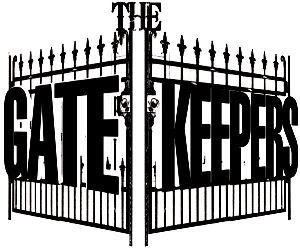
Agents are the gate keepers publishers rely on to sort through the gazillions of manuscripts people send in every week, only a few of worthy of consideration. Most manuscripts that hit their desks aren’t:
polished enough—just not ready for prime time (Hence the need for Feed Back Buddies post haste.)
the genre or category a publisher handles
what the reading public is in the mood for (Right now it’s vampires, so I might be in trouble here.)
Most larger publishers will throw out without reading any un-agented manuscript that reaches them. But it’s also to the writer’s advantage to have an agent because
they already have built relationships with publishers and can get the writer in the door,
they fight to get writers the best, most lucrative contract, because they get paid a % of sales,
they make sure writers get paid and on time, and
they sometimes offer additional services like minor editing.
And so I’ve been pondering the need for an agent for months now. But I forced myself to keep my nose to the grindstone and finish the book first, because should an agent show interest in your work, you’ve got to have the manuscript finished and polished to a high gloss. (Hence the need for Feed Back Buddies post haste.)
So with the manuscript of Honor at Stake essentially finished, I’ve turned my attention to getting an agent. The first step is to consult books like Guide to Literary Agents and Writer’s Market for the agents most suited to my work. Agents, like publishers, specialize in certain types of books, so you might as well not waste your time and effort contacting ones that won’t be interested. Many of the agencies exhort authors to do their homework before submitting. So that’s what I’m doing this week. You can learn a lot by carefully reading the listings. Many agencies will tell you outright what they do NOT want to receive. Here are two examples:
Does not want: Does not want to receive category romance, erotica, inspirational, historical, sci-fi/fantasy, horror/dark thrillers, short stories/novella, children's picture books, poetry, screenplays.
Does not want: Does not want to receive poetry, screenplays, short stories, westerns, horror, new age, religion, crafts, cookbooks, gift books.
Since these agencies don’t want “inspirational” or “religion” I’m assuming they would disapprove of the biblical themes in my book. Other agencies list what they do specifically want. For example:
Actively Seeking: "BookEnds is currently accepting queries from published and unpublished writers in the areas of romance (and all its sub-genres), erotica, mystery, suspense, women's fiction, and literary fiction. We also do a great deal of nonfiction in the areas of self-help, business, finance, health, pop science, psychology, relationships, parenting, pop culture, true crime, and general nonfiction."
I got excited about the fact they’re interested in "unpublished writers", but lost interest when I saw they’re actively seeking “erotica.” It doesn’t sound like the kind of agency I’d want to do business with.
The following agency interests me, however. CBA stands for Christian Booksellers Association, which means this agency definitely is geared to my type of work. And they’re looking for YA, that is, Young Adult, which is another step in the right direction. The fact that they want “literary” YA is a plus, since my novel is definitely not about shallow topics like the high school clique scene. The only downer is they want fiction by “established authors,” and I don’t know if I qualify as that.
Represents: nonfiction books, most genres of commercial adult fiction and nonfiction, as well as select young adult projects
Actively Seeking: "We are most interested in commercial women's fiction, especially elegantly crafted, sweeping historicals, edgy, fresh teen/chick/mom/lady lit, and CBA women's fiction by established authors. We are also very keen on literary historical mysteries and literary YA novels. Topical, timely nonfiction projects in a variety of subject areas are also of interest, especially prescriptive how-to, self-help, sports, humor, and pop culture."
Here is what a complete listing from Writer’s Market looks like:
HARTLINE LITERARY AGENCY
123 Queenston Dr.
Pittsburgh PA 15235-5429
Phone: (412)829-2483
Fax: (412)829-2432
E-mail: joyce@hartlineliterary.com
Website: www.hartlineliterary.com
Contact
Contact: Joyce A. Hart.
Member Agents: Joyce A. Hart, principal agent, Terry Burns: terry@hartlineliterary.com, Tamela Hancock Murray: tamela@hartlineliterary.com, Diana Flegal: diana@hartlineliterary.com
Specialties: "This agency specializes in the Christian bookseller market."
Agent receives 15% commission on domestic sales.
Freelance Facts
Member of AAR: False
Member of WGA: False
Simultaneous Submissions: Yes
Current Handles: nonfiction books 40%,novels 60%
Number of clients: 40
Submissions: Submit summary/outline, author bio, 3 sample chapters.
Responds in 2 months to queries. Responds in 3 months to mss.
Obtains most new clients through recommendations from others.
Offers written contract.
20% new writers.
Needs
Represents: nonfiction books, novels
Actively Seeking: Actively seeking adult fiction, self-help, nutritional books, devotional, and business.
Does not want: Does not want to receive erotica, gay/lesbian, fantasy, horror, etc.
Nonfiction
Needs: business,child guidance,cooking,diet/nutrition,economics,foods,inspirational,money,parenting,religious,self-help,women's issues,women's studies
Fiction
Represents: action,adventure,contemporary issues,family saga,historical,inspirational,literary,mystery,regional,religious,suspense,thriller amateur sleuth, cozy, contemporary, gothic, historical, and regency romances
It sounds like it might be a great match for me! And they do take new writers! Oh, but wait. They don’t mention Young Adult one time. Sigh.
So I’ll keep searching. It’s obviously not going to be easy to find just the right agent.
April 2, 2012
Short Story Contest
Sigh. Only one person submitted a short story. Sigh. I know there are talented people with short stories to share. I know, because I keep running into them. I'll try the contest again later this year, so please pass the word to your fellow writers.
Meanwhile, I'm going to go ahead and post the lone entry, a short story called Judgment Day by my fellow Waterloo writer Jacob Poettker. I hope you'll let Jacob know your thoughts by commenting below the story.
Judgment Day
by Jacob Poettker
Life can seem long, but in the most important days, life can seem longer than one could ever imagine. Life can make days seem like years; make seconds feel like minutes and minutes feel like days, in this case, minutes and seconds seemed like hours and minutes.
I was driving, that’s it. I wasn’t on the phone. I wasn’t texting nor had I any alcohol in me. It just seemed like that day wasn’t my lucky day.
I pulled up to an intersection on a hill. I was just trying to get across the highway. I could barely see the road crossing. It was a beautiful spring day. Flowers and tree blooms had just woken up from their slumber and began to show their colors. Fresh green grass sat at the road’s edges and the sky seemed empty of clouds and limitless. A scent of freshly cut grass and air filled my nostrils. Today would be a day one would seldom think anything bad could happen, but that one would be wrong.
I looked both ways and the road seemed empty from what I could muster. My foot eased forward on the gas petal to my blue Saturn and the car eased forward. The roads were clear, I could’ve sworn it. I could’ve bet my soul that I thought the roads were clear, but as I pulled forward into the intersection, a large truck carrying a trailer sped towards my side, swerving a little bit. And time seemed to stop.
All of this happened in about a two-minute period: 
The truck sped forward as I floored my car. I was almost across the road when the truck slammed into the back door of my side of the car. My car spun right in front another car in which the small car slammed into my passenger side, sending me spinning straight towards a drop off that started the edge of a sea of trees and bushes. Unfortunately for me, the car flipped once; twice, then a third time straight into a tree, good first.
Branches and glass broke; metal tore and bent, and I flew, back first, straight into a tree at fifty-five miles per hour.
I heard several things snap in a sickening way. I thought they were my ribs and maybe a few vertebrae. Smoke and humidity now replaced the once intriguing scent of fresh air. What was left of my car caught fire next to a puddle of blood that led to me.
Pain. That’s all I could feel. I couldn’t feel the gentle breeze now stinging my open wounds. Pain blocked out everything. I barely heard an ambulance drive up and two EMT’s run up to me. I did hear one thing. It was one of the EMT’s.
“This one will never make it,” one of them said.
“What about the others?” the other one asked. Blood blurred everything but the two men’s blue uniforms.
“The one in the car’s fine,” the first one said. “The other one is fine to, but he is intoxicated.”
Here’s what happened. John Schmitt was drunk but refused to let his wife drive him home. Instead he made the wrong choice and that wrong choice cost me my life.
I found my self in a library. Rows and rows and rows of brown wooden shelves stood in front of me, stocked with books. Each one had a unique name. No two books were named or designed the same way. Light filled the room, but I couldn’t find any light.
I was drawn forward, as if my body had a mind of its own. A book; one book in particular caught my attention. It was a big red book with a golden leather lining. The title shocked me most of all. It was my name; Paul Jones. My fingers fumbled around the spine of the book. My other hand opened the cover, trembling. A table of contents awaited me on the inside cover; there wasn’t a acknowledgements page, not even a copyright page. The chapters dumbfound me; Thoughts, Words, Actions. As I flip through the page I am only more ashamed. This book lists every thought, action, or words I’ve said and most of them aren’t very prideful. I couldn’t let anyone see this book. I tried to hide it behind other books but it seemed to tall and the gold lining looks as if it’s glowing. I hid it under my dirty white shirt and walked over to the couches. There I tried to stuff the book in between the seats but the book seemed to thick. I then tried to stuff it under the couch but the crack seemed to small. There was no use in hiding it.
If I check it out, I thought. I’ll never return it so no one can see it.
I walked over to the checkout desk to find the one person I did not want to see this book. He had long wavy brown hair and distinctive and loving blue eyes. Two scars claimed spots on His palms that looked as if someone sent a nail through His hands, which had happened. Jesus looked at me in a pure white robe. He motioned for me to sit with him on a couch.
Before we could open the book to look through it, a new figure appeared. He wore a blue denim shirt and a white T-shirt underneath that both were stained with blood. A nametag on his jacket read, “John Schmitt.” This man caused my death. He had short black hair that hugged his head with several tattoos on his large and hairy arms.
“Where am I?” John asked. Jesus’ stare looked as a child looking at a stranger. The man looked at Jesus and began to tremble.
“Am I dead?” John asked. Jesus’ stare was just as intense. “No, I can’t be dead. I have a wife and three kids. I can’t leave now, I’m not ready.”
“For it is written,” Jesus began. “Whoever believes in Him is not condemned, but whoever does not believe stands condemned already because he has not believed in the name of God’s one and only Son.” As Jesus finished, the hands of demons grabbed John’s ankles and pulled him down to the Lake of Fire. Jesus then turned to me.
“Reading this is unnecessary, I forgive you,” Jesus said. “Let’s join everyone in paradise.”
A door opened that I had not seen before. The smell of chilly fresh air and campfire smoke intrigued me. I could see all of my loved ones, and I joined them in paradise.
Now Available for Nook and Kindle!
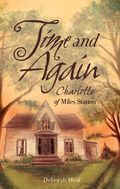 My book Time and Again is now available at Barnes & Noble.com and Amazon.com. Also available for Amazon Kindle and Barnes & Noble Nook.
My book Time and Again is now available at Barnes & Noble.com and Amazon.com. Also available for Amazon Kindle and Barnes & Noble Nook.
But to get a signed copy, check the Event Schedule to find a signing event near you. If you live too far away, visit my Book Store to order yours. I'll be happy to send you a signed copy right away.
Abby expected to spend the summer in the old house in Nowhereville getting to know her student Merrideth. She didn’t expect to get to know Charlotte Miles, the girl who had lived there 160 years before. 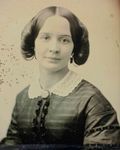
She planned to tutor Merrideth in math and English—not history.
But that’s before the freaky program on her new computer started waking her with its invitation to “take a virtual tour." Turns out, a lot happened in that old house. . . .
. . . and the history books left out the good stuff.
Now Available for Nook!
 My book Time and Again is now available at Barnes & Noble.com and Amazon.com. Also available for Amazon Kindle and Barnes & Noble Nook.
My book Time and Again is now available at Barnes & Noble.com and Amazon.com. Also available for Amazon Kindle and Barnes & Noble Nook.
But to get a signed copy, check the Event Schedule to find a signing event near you. If you live too far away, visit my Book Store to order yours. I'll be happy to send you a signed copy right away.
Abby expected to spend the summer in the old house in Nowhereville getting to know her student Merrideth. She didn’t expect to get to know Charlotte Miles, the girl who had lived there 160 years before. 
She planned to tutor Merrideth in math and English—not history.
But that’s before the freaky program on her new computer started waking her with its invitation to “take a virtual tour." Turns out, a lot happened in that old house. . . .
. . . and the history books left out the good stuff.
March 30, 2012
Honor at Stake: the Manuscript!
My second child went to first her day of kindergarten and I’m waiting to see what she learned at school.
You’ve seen those lists of people the author thanks at the beginning of her novel. Well, for my second book, I’ll have a list too! I put my manuscript for Honor at Stake* (the sequel to Time and  Again) into the hands of my volunteer Feed Back Buddies today, and I can’t wait to hear what they have to say.
Again) into the hands of my volunteer Feed Back Buddies today, and I can’t wait to hear what they have to say.
I’ve asked them to read the manuscript for its logical content, to tell me places where:
Sentences are unclear
Information is missing
Continuity is broken
Character motivation seems unrealistic
Or any other things they think of when they read it.
Also, this morning joined an online critique group called Scribophile where my book will be critiqued in return for my critique of others’ work. It means one more thing that will take me away from writing, but in addition to getting attention for my book, it should be good writing analysis practice for me.
Then, after all the editing/revision is completed, I’ll ask for help again—this time to proofread for typos, spelling and punctuation errors, etc. This is the order of events I taught my creative writing students, but with Time and Again my publishing company did it in reverse order—proofreading first and then revising afterward. I knew that was a recipe for problems, and sure enough several typos (introduced during revision) made it into the published book. I’m going to trust myself more this time around.
And finally, I’ll have a manuscript ready to send out into the publishing world. (After I find an agent. More about that later.)
I didn’t have the courage to ask for feedback with the first book. I was entirely too chicken to let anyone but family see it. I think the sequel, Honor at Stake, will be better for having a trial run before I send it for publication. I am so grateful for those who are taking the time out of busy lives to help with this.
If you’d like to be one of my Feed Back Buddies email me at debbie@deborahheal.com.
*Honor at Stake is the working title. Maybe my Feed Back Buddies can think of a better one.
March 5, 2012
Book Signing At Barnes & Noble Saturday
I’ve been obsessing a little about my first actual book store book signing on Saturday. And that was before I found out some pretty shocking statistics. (Read on!)
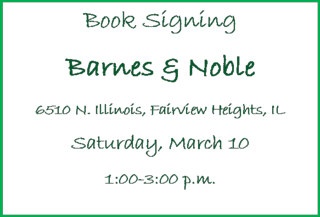 Originally, like most new authors, I believed that once I’d done all the writing and editing and revising and proofreading and finally gotten my book published, I was all set. Then all I’d have to do was watch the books fly off the book store shelves and start planning how to spend my royalty checks.
Originally, like most new authors, I believed that once I’d done all the writing and editing and revising and proofreading and finally gotten my book published, I was all set. Then all I’d have to do was watch the books fly off the book store shelves and start planning how to spend my royalty checks.
But when the euphoria of getting the contract wore off, I began to be aware of a few sober publishing realities I’d never thought of before. For one, I hadn’t realized how many books are published each year in the U.S. The numbers I saw online were all over the place—from 172,000 to 500,000 per year. But whichever number you choose, it’s obvious they can’t possibly all fit on the available bookstore shelf space. (And according to Google, worldwide there are a total of 130 million books ever published.)
The number of books published in the U.S. has been exploding in the last several years. That’s good because apparently we’ve got some catching up to do. According to Wikipedia, in 2001 and in 2005, Britain overtook the U.S. in the number of books published. And even now, the numbers aren’t too far apart. This shocked me when I considered the huge population disparity between us. It concerns the United Nations Educational, Scientific and Cultural Organization (UNESCO) too, because it considers the number of books published per year an important index of a country’s standard of living, education, and general health.
Put that together with our falling math and science scores and don’t you feel like throwing up? So it’s good that as a nation we’re publishing more books now. Unfortunately, for the individual author vying for shelf space, the increase in books is bad news. According to Steven Peirsanti, president of Berrett-Koehler Publishers, a book has less than a 1% chance of being stocked in an average bookstore, because for every available shelf space, there are 100 to 1,000 titles competing for it.
With all this in mind, I thank you all again for your continued support as I launch my writing career with my first novel Time and Again. As you may have heard (ha ha) it is now available on Amazon.com and Barnes & Noble.com, among other online bookstores.
But now, I must convince the brick and mortar bookstores to stock my book. A good turn-out is the best way to show stores my book is likely to sell well and that they should put it on their limited shelf space. For those attending my Barnes & Noble book signing, Time and Again will be discounted to $12.00. Hint: it would make a great gift. For other signings please see my Event Schedule.
March 4, 2012
Connections in Historic Alton
I only sold a few books at my signing at The Second Reading Shop in Alton on Saturday, but the trip was well worth the effort and time. For one thing, the building at 16 East Broadway is so charming and historic. It was built in 1831 and became a stop on the Underground Railroad in 1840. What could be a better location for a signing for my novel, Time and Again, which is set in Alton during the Civil War?
That morning, just minutes before I left for Alton, I decided to take a look at the bookshop’s website so I’d know a little more about my host for the day. That’s when I discovered that the owner, John Dunphy, was the author of Lewis & Clark’s Illinois Volunteers, an informative little book I have been using as a resource for my sequel, Honor at Stake. So I happily brought it along and had him do a book signing for me.
John, also the author of several other books (all available at his shop), is knowledgeable about a variety of historical topics. So chatting with him was fun, and I got several leads for information I can use in Honor at Stake and the third story in the series that is brewing in my brain. In it, I plan to explore slavery in southern Illinois. (You do realize, don’t you, that the free state of Illinois, that bastion of liberty, had slavery?) When I told John I have been contemplating a white heroine who discovers she has black roots, he quickly suggested Kingsblood Royal by Sinclair Lewis and Sundown Towns by James Loewen.
I met other interesting people too, among them, a couple who came in because they had heard about Time and Again’s portrayal of Miles Station. They live just down the road from where that village used to be. Another woman bought a copy for her elderly father, who waited in the car, also eager to read about local history. And Nancy Alexander, a local historian, came by to buy my book (for which I am honored) because Cathy Bagby from the Alton Museum of History had recommended it. Nancy had lots to add to the conversation John and I were having about early Alton. She was pleased to learn that I had included her personal hero Elijah P. Lovejoy in Time and Again. She suggested I read It’s Good to Be Black by Ruby Berkley Goodwin to get a sense of the black experience in southern Illinois. The owner of a bookshop in Quincy stopped in to browse and he turned out to be history buff as well. He recommended Galvanized Yankees by Dee Brown, Undaunted Courage by Stephen Ambrose, and The Year Of Decision, 1846 by Bernard Augustine De Voto, all of which I plan to scope out.
After I said goodbye to John I took the opportunity to admire several of the other old buildings in downtown Alton, and like my character Abby, I wished I could set up her computer and do a little time- surfing. Oh, the stories some of these buildings could tell! I stopped at the remains of Alton Prison just off Broadway, ignoring the eyesore that squats nearby on the river. (And don’t look for the Alton Belle to appear in Honor at Stake either!) I visited State Street Market, once known as Franklin House, one of the largest and finest hotels in Alton. Lincoln was headquartered there in October of 1858 when he was in town for the last of the seven debates with Stephen Douglas.
I topped off the day by indulging in a piece of ‘Peanut Butter Lustre’ pie at My Just Desserts across the street from John’s bookshop in the Ryder Building on Broadway. Holy cow! I’ve never had a better piece of pie in my life! It was even sweeter knowing Lincoln had often visited the same building when it was used as a courthouse. In 1840, Lincoln delivered a political speech there, and I wondered if it was the same one he gave on July 4th of the same year in Woodburn, my home "town."
This, like everything else that had happened on Saturday, illustrates how connected everyone and everything is. Definitely a good day.




